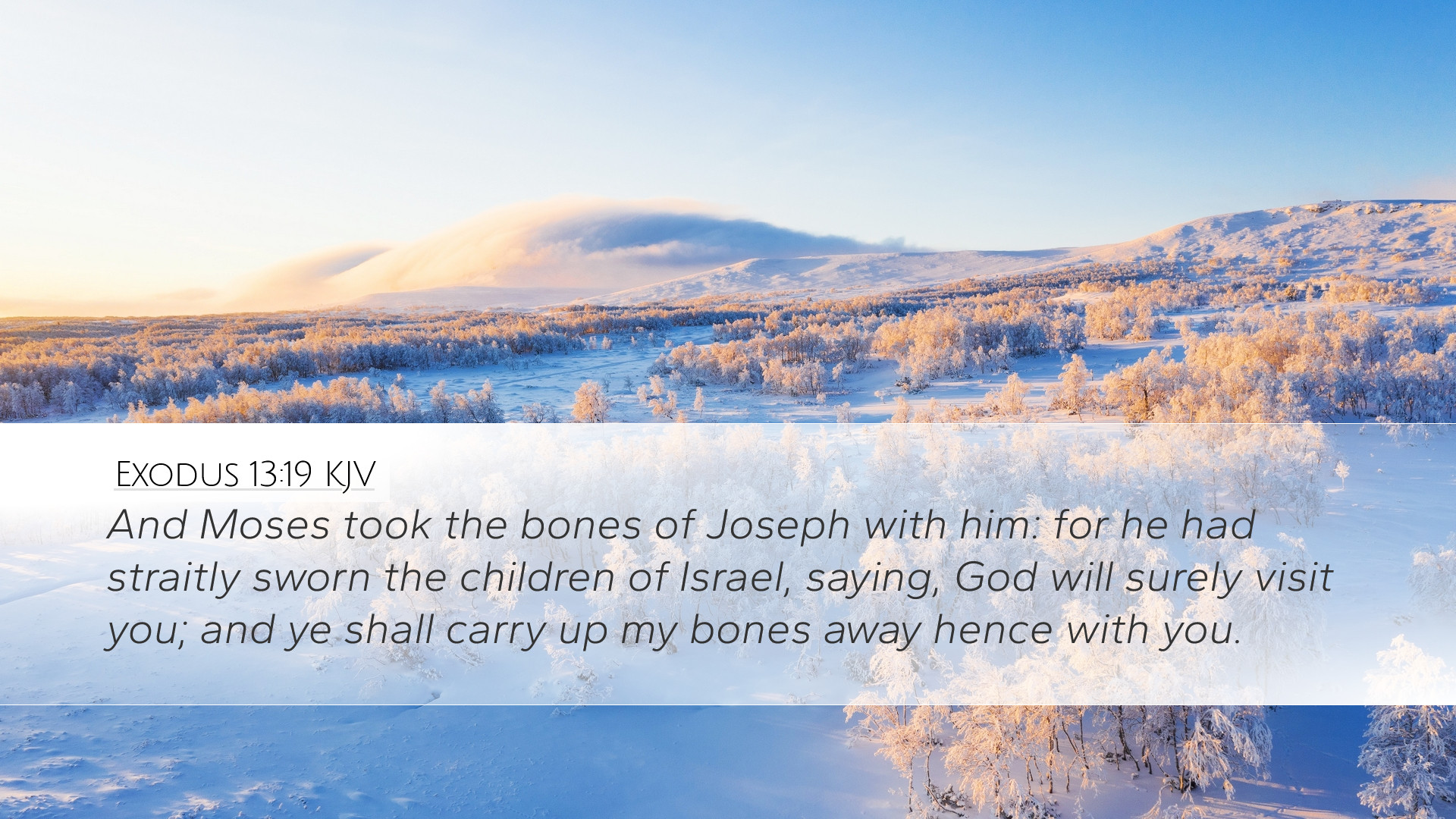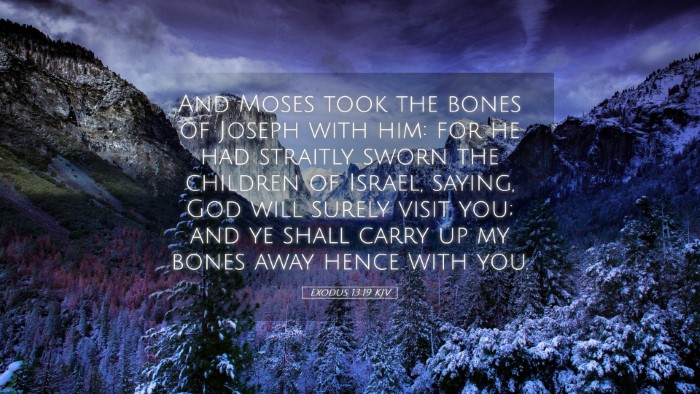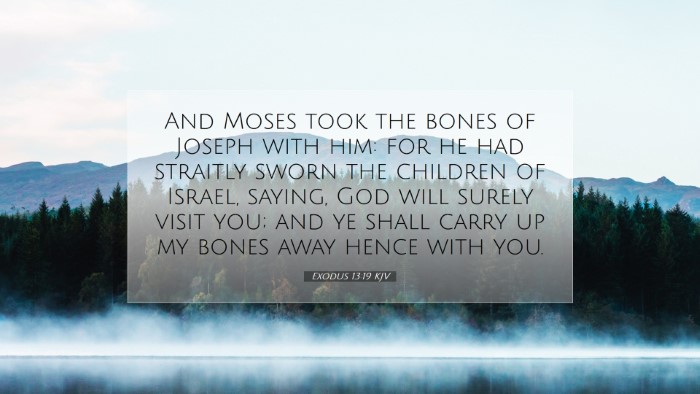Exodus 13:19 Commentary
In Exodus 13:19, we read, "And Moses took the bones of Joseph with him: for he had straitly sworn the children of Israel, saying, God will surely visit you; and ye shall carry up my bones away hence with you." This verse encapsulates both the historical significance and spiritual implications surrounding the journey of the Israelites from Egypt, intersecting Memory, Providence, and Faith.
Historical Context
To fully appreciate the weight of this verse, one must understand the historical backdrop of the Israelites in Egypt, the life of Joseph, and the promises surrounding his death. Joseph, a pivotal figure in the narrative of Genesis, had risen to prominence in Egypt and was the key reason his family survived a catastrophic famine.
-
Joseph’s Legacy: Joseph's request for his bones to be taken back to Canaan illustrates his unwavering faith in God’s promise to Abraham, Isaac, and Jacob regarding their eventual return to the Promised Land.
-
Covenant Fulfillment: His declaration also mirrors the covenants God made with those patriarchs, emphasizing the sacredness of the land to which they were destined.
Moses' Role
Moses taking Joseph's bones represents a continuity of God’s promise made through generations. Albert Barnes notes that this was significant to the Israelites, serving as a tangible reminder of God's faithfulness.
Matthew Henry emphasizes that Moses honored Joseph's dying wish out of respect and adherence to divine guidance, indicating that leadership is intrinsically linked to honoring one’s past.
Theological Implications
Theologically, this verse illustrates broader themes of providence, faith, and the assurance of God’s promises.
-
Providence: Joseph's bones become a symbol of God's faithfulness in preserving the covenant during a period of oppression and hardship.
-
Faith in Action: Carrying the bones demonstrated the Israelites' faith not only in Joseph's promise but in God's ultimate plan for their liberation.
The Significance of the Bones
The bones of Joseph symbolize hope and the anticipation of future fulfillment. Adam Clarke emphasizes that these bones serve as a charge to future generations about the importance of remembrance and adhering to God’s promises.
Moses' act of carrying the bones signifies the importance of legacy in faith. As Joseph’s body would eventually rest in the Promised Land, so too would his descendants be assured of God’s plan unfolding.
Application for Today
For modern believers, Exodus 13:19 serves as a reminder of our own spiritual journey. Just as the Israelites were called to remember and honor God's promises, we too are invited to hold fast to God's Word.
-
Memory of God’s Promise: Remembering the past helps believers grasp the present and future; Joseph's bones provide a physical representation of hope and assurance.
-
Faithfulness in Leadership: For pastors and leaders, the act of remembrance extends to cultivating faithfulness in their communities, much like Moses did with the people of Israel.
-
Expectation and Hope: Just as Joseph anticipated a return to the Promised Land, believers today can live in hope, assured of God’s future promises for us.
Conclusion
Exodus 13:19 invites deep reflection about our faith journeys. By examining the dedication of Moses to carry Joseph’s bones, we witness a profound commitment to the faithfulness of God and His promises. This verse challenges us to reflect on our legacies and to continue fostering hope in the promises of God in our lives and communities.


